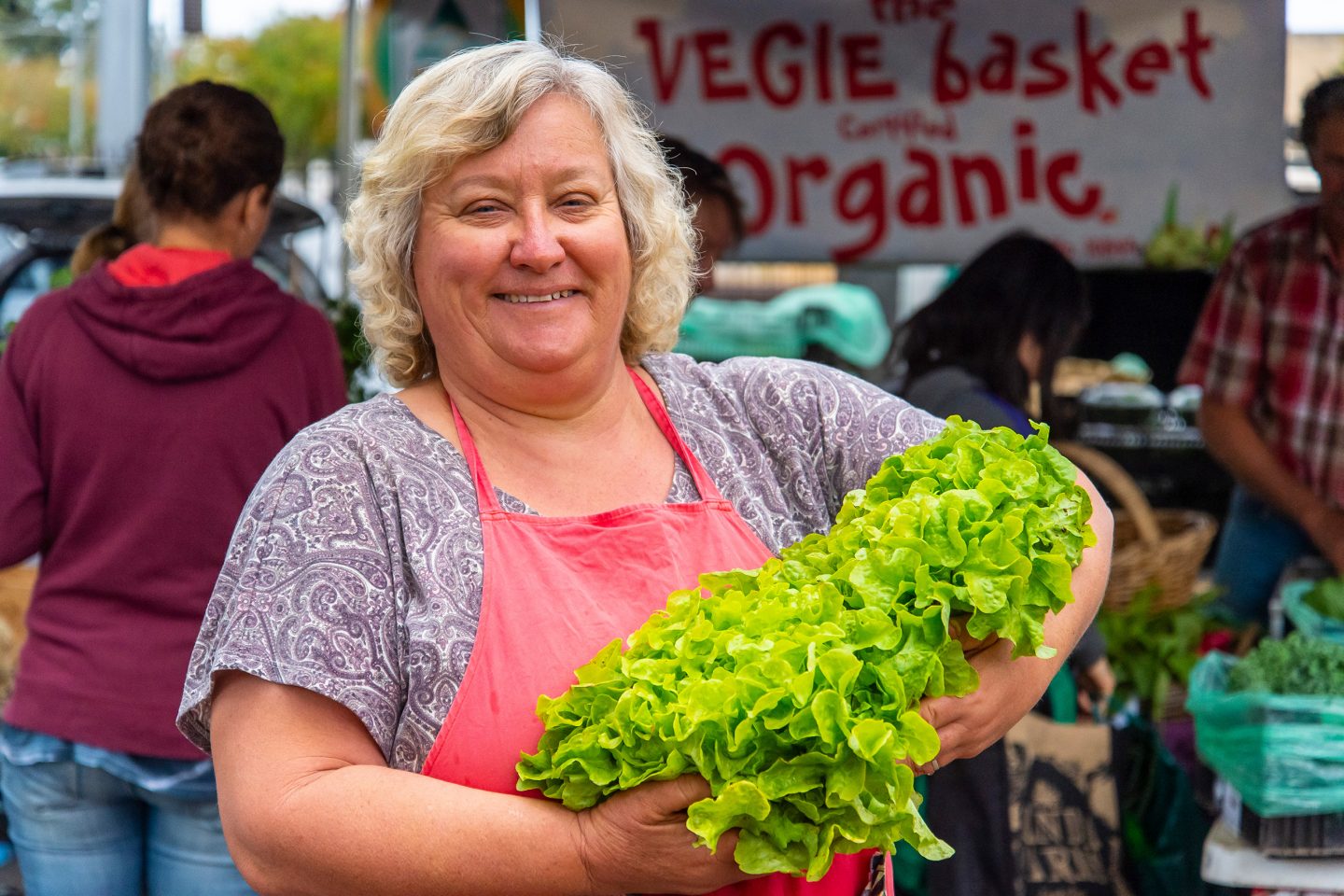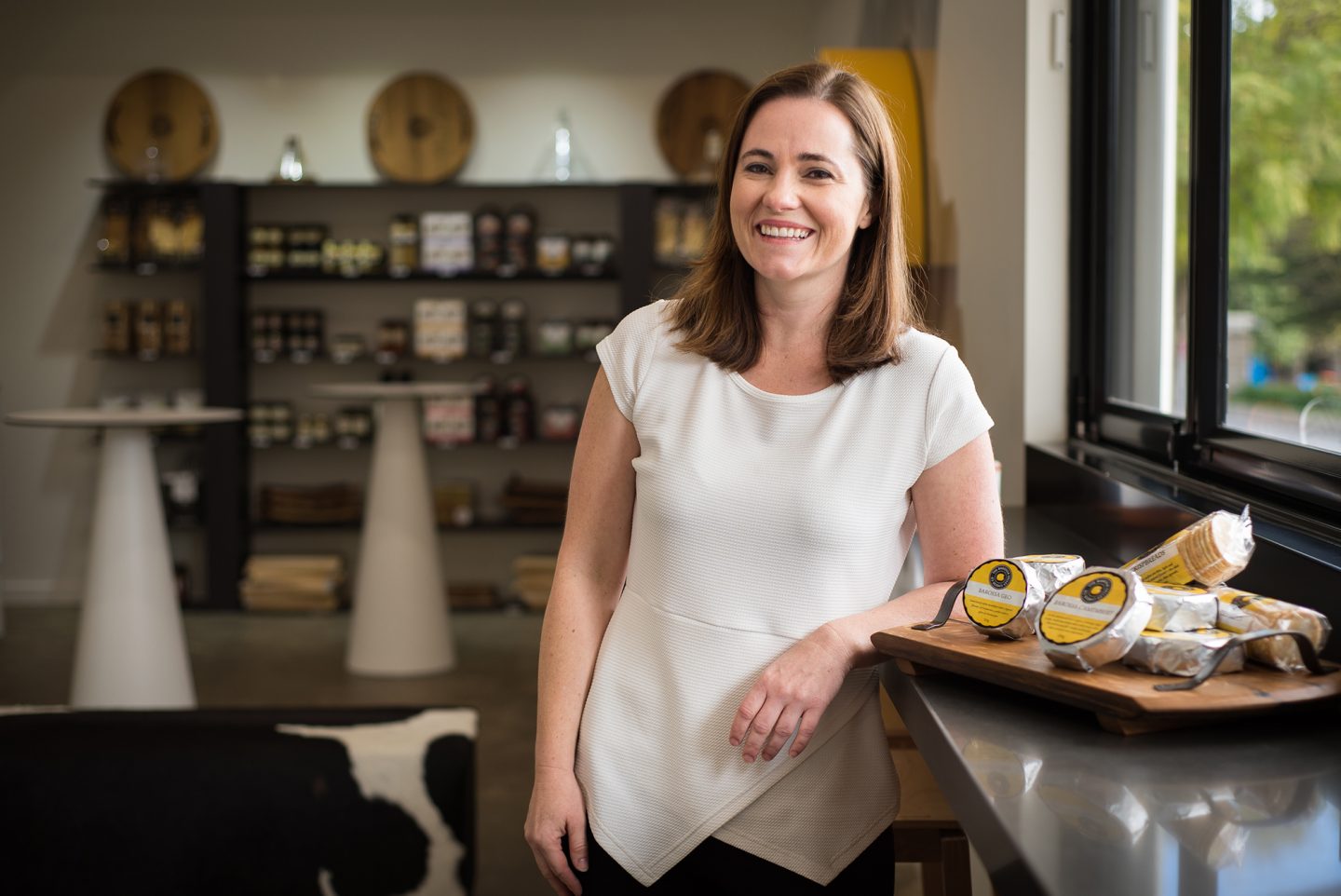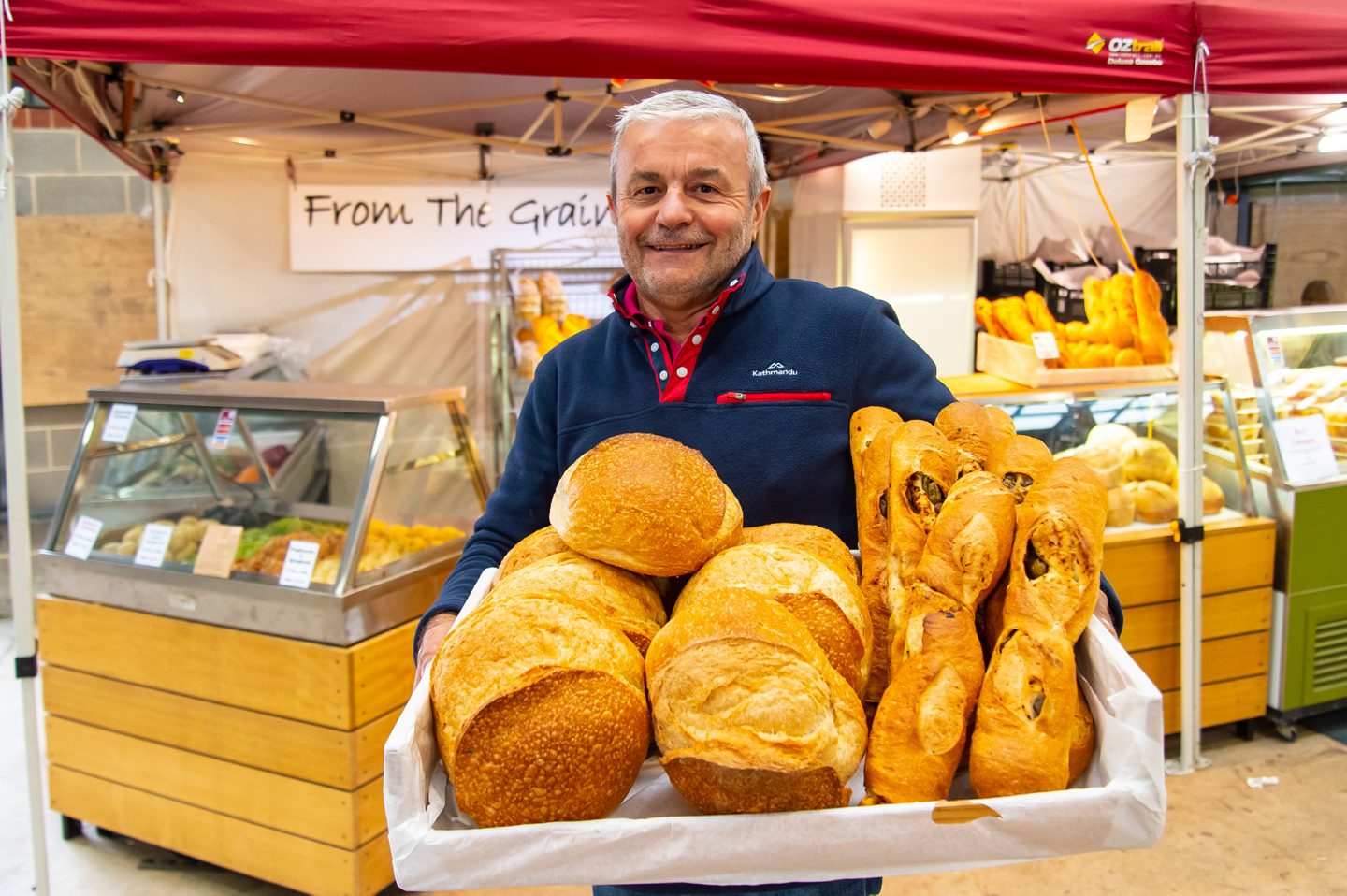How producers and retailers have been keeping South Australia fed throughout the pandemic

It’s been an anxious time for South Australian food producers and consumers, but many are rising to the challenge by creating innovative ways to get their products to market.
One unexpected silver lining of the COVID-19 pandemic is how it has prompted people to think hard – and more deeply – about their connection to food, where it comes from, who grows it and how we can show our support for local producers. Barossa-based cheesemaker Victoria McClurg is choosing to pivot not panic during the pandemic. Her business, Barossa Valley Cheese Company, is one of many SA food producers forced to dramatically rethink their business models in the wake of COVID-19.
“Our reality is that we’re a very tourism-[dependent] retail and food service supplier and that has all essentially dried up, so two thirds of our business has gone,” McClurg says.
“We need to change what we are doing. We’d started an online platform about 12 months ago, we were just dabbling, and now COVID-19 is giving us a real shove into becoming more advanced with e-commerce.”
McClurg, like many SA food producers, is exploring creative ways to keep afloat as the pandemic continues to unfold.
“The collaborative stuff I see going on all around us is really awesome, it’s changing the modelling of business for the future, and how we work collectively,” she says.
In addition to her own direct cheese sales, McClurg has tapped into a collaboration with Barossa Fine Foods, which has started its Local SA Pantry online store, stocking food from an array of boutique producers from Pangkarra pasta to Abbots and Kinney pastries.
She’s piggybacked onto an initiative by Riverland winemaker Ashley Ratcliff from Ricca Terra, who has bought a van to deliver his wine and Barossa cheese (among other goodies) to consumers in Adelaide.
“I’ve also teamed up with Edible Blooms to create Hampers In Hand, which are made up of foods from small Barossa producers [and] can be sent around Australia using [Edible Blooms’] fantastic network, and that is going really, really well,” McClurg says.

Catherine Sayer, chief executive officer of peak industry body Food SA, says COVID-19 has driven home how “absolutely critical” the food and beverage sector is to our lives and the economy.
“We are incredibly fortunate to have more than enough food here for our population – and such a massive diversity of food – so we must never forget that or stop supporting it.”
FoodSA has launched Online Marketplace, a directory to help consumers find local food and beverage supplies online. It is available through the Eat Local website and connects people to an array of products available for delivery.
“It has been really good, as it’s engaged that consumer level and is actually introducing people to food products they might not usually have known about,” Sayer says.
“It’s also an invaluable resource for anyone restricted by social distancing and isolation, particularly those physically unable to get to shops, and is contributing to keeping people safe.”
FoodSA is going all out to provide support to local producers, including hosting free webinars (in partnership with law firm Norman Waterhouse) to help with critical business issues during the COVID-19 crisis. The group has also worked with accountancy firm Moore Stephens to create a set of helpful finance guidelines.
“It’s a budget and cashflow tool for business – food and beverage industry specific – to help people get out the other side,” she says.
Locally owned and operated supermarkets are continuing to champion homegrown food during the pandemic.
Spero Chapley, director of Frewville and Pasadena Foodland, is ramping up support for SA producers and growers.
“Local to local works really well in South Australia,” Chapley says.
“We said to our local producers up front, ‘Iff you grow it or make it, we will come and get it using our own trucks.’
“By going to the producers (for dry goods and fresh produce), we felt the logistics of doing that would give them one less thing to worry about.”
Chapley says the coronavirus has presented new opportunities for local producers to get onto supermarket shelves. “We’ve started engaging [with] new local food producers to make sure we always have strong supplies and to fulfil needs … which is a positive. As an example, we have had local bakeries approaching us who have lost business who we may be able to work with … and other suppliers who have been hit hard by lost contracts so we are working closely with them, to buy their stock and do deals to keep the dollars coming to them so they can keep people employed.”
Chapley says his stores haven’t been hit by stock shortages experienced by major supermarkets.
“It’s all about the good relationships we have had for many years with SA companies like Laucke and San Remo and many others,” he says. “In those first weeks when the panicking began, we started making phone calls to our valued suppliers. We were working overtime to keep things flowing as normal and it has been really nice to see the strengths of our relationships through all this.
“There has been a bit of noise about supermarket price gouging, some unqualified commentary about supermarkets raking it in, but it is not true for us. To the contrary, we have not lifted our prices, we are really focused on maintaining retail prices and absorbing any price increases and we have taken on new suppliers to help us manage this so we can spread the load.
“Volume is up obviously but so are a bunch of abnormal costs– we have been investing left, right and centre to make sure things keep on track, whether it be sending transport to collect produce and goods directly from producers, extra store staff, extra resources supporting hygiene, and our Shop Assist program.”
Independent grocer John-Paul Drake from Drakes Supermarkets says he has also seen a growing awareness of the importance of buying local.
“We live and breathe by supporting local – and now more than ever, local is vital,” Drake says.
“When we all buy and shop local, the money stays in the state and I think everyone needs to be on the front foot at the moment.”
Farmers’ markets also play a major role in showcasing foods grown and made by small South Australian producers.
Adelaide Farmers’ Market executive officer Christine Roberston says markets have been declared an essential service by the federal government and supported by state and local governments.
“Our market remains open just like supermarkets and other food shops, but we are [now] a quick ‘shop and go’, not a family outing,” Robertson says.
The Sunday market has moved to a new space at the Wayville Showgrounds to provide twice as much room and reduce crowding.
“Social distancing is mandatory. We have queue control and we ask for only one shopper per household – we have to be safe,” she says.
“Our stallholders were really wondering at first whether their livelihoods were going to disappear, they felt so uncertain.
“We showed strong leadership, reminded everyone we’re in it for the long haul and are doing the right things, so all the stallholders now feel so grateful the market is continuing.”
Robertson says the farmers’ market has also been “throwing lifelines” to other local food businesses experiencing troubled times.

“There was a cupcake store in the city which was looking like closing and we reached out to them, so for the past two weeks they have been with us and selling out every week.
“We have been thinking outside the square and if people stop coming, which I feel is highly unlikely, we have been working on online ordering as a possibility.”
At a federal level, the Minister for Agriculture, David Littleproud, released statistics about the state of the Australian agricultural industry to reassure Australians that the country has plenty of capacity to feed itself, no doubt in an effort to dampen panic buying.
In a release on 17 April, the Minister stated, “Australia will always have enough food. We produce far more food than we consume. COVID-19 does not change that. “We remain a net exporter of food. We export 70 per cent of our agricultural production.
“In terms of specific commodities – that’s 76 per cent of our beef and veal, 71 per cent of our wheat and 41 per cent of our dairy products being exported.
“A surge in demand had an impact on the availability of some of our favourite products on supermarket shelves. Shoppers were stockpiling and supply chains had to adjust. This is not an indication of food shortages.
From Victoria McClurg’s perspective, some food producers and makers are finding a silver lining in the coronavirus crisis, as customers embrace the “buy local” sentiment, which was already strengthening after the bushfires earlier this year.
“The local push is potentially the strongest positive to come out of it all,” she says.
“We saw [it] in the first week – we were swarmed with people coming in and wanting to support us.
“It’s also become a thing on a Friday or Saturday night to get takeaway from your local restaurant, and even if you can only afford to do it once a week, every little bit helps so we can all keep ticking over and get through this.”